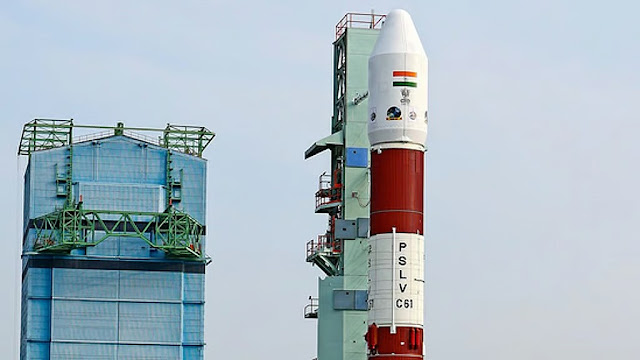OS-09 Earth Survey Mission Faces Technical Glitch Mid-Flight, ISRO Confirms Mission "Could Not Be Achieved" – Analysis Underway
Sriharikota (Andhra Pradesh): In a dramatic turn of events, what was meant to be a glorious milestone for India's space journey turned into a day of concern and introspection for the Indian Space Research Organisation (ISRO). The highly anticipated launch of ISRO’s 101st satellite, EOS-09 (Earth Survey), from the Sriharikota Space Centre aboard PSLV-C61 ended in partial failure after a technical glitch crippled the mission during its third stage.
The mission began with high hopes and clockwork precision at 5:59 AM on Sunday, as the PSLV-C61 roared into the sky, initially showing normal performance through its first and second stages. However, ISRO soon reported an unexpected snag that halted the mission before its critical satellite deployment phase.
“The PSLV-C61 performed normally up to the second stage. However, a technical anomaly was observed during the third stage. The operation could not be achieved,” ISRO said in an official social media post.
The third stage, a solid rocket motor responsible for giving the final push and pressure to the payload section, reportedly encountered issues that prevented the satellite from successfully separating. This stage is designed to exert a maximum pressure of 240 kilonewtons, a vital element to push the satellite into its designated orbit.
“A technical issue was encountered in the third stage of the launch sequence. We are analyzing the anomaly in detail. The mission could not be completed as planned,” confirmed ISRO Chairman V. Narayanan, addressing the media in a solemn statement.
Despite the setback, the initial stages of the launch sequence proceeded as expected. The PSLV-C61’s flight sequence begins with the ignition of PS1 and PSOM (strap-on motors), followed by separation phases leading up to the third stage – the crucial thrust booster. It was at this final leg of the journey that the system failed, preventing the satellite from deploying into orbit.
The EOS-09 satellite was designed for Earth observation, resource mapping, and climate tracking, and its successful deployment was expected to enhance India's space-based monitoring capabilities. The partial failure comes as a rare hiccup for ISRO, which has previously boasted a robust track record in satellite launches and orbital insertions.
“It is disappointing, but such technical anomalies are part of the complexities of space missions. What matters now is how fast and accurately we investigate and resolve it,” said a senior ISRO official, requesting anonymity.
As the space fraternity across the country reacts with mixed emotions, ISRO engineers have already begun a post-failure review process to identify the fault that disrupted an otherwise historic launch.
This incident reminds us of the razor-thin margin for error in space exploration, even for an agency as accomplished as ISRO. While the mission didn’t reach its final goal, the data from this launch will now play a crucial role in refining future missions.










No comments:
Post a Comment